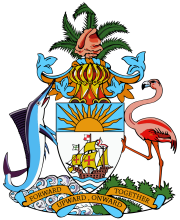Law of Property Act (Cap. 170).
An Act to further amend the law of property and to relieve trustees.
Resource information
Resource Language
ISBN / Resource ID
LEX-FAOC078534
License of the resource
Copyright details
© FAO. FAO is committed to making its content freely available and encourages the use, reproduction and dissemination of the text, multimedia and data presented. Except where otherwise indicated, content may be copied, printed and downloaded for private study, research and teaching purposes, and for use in non-commercial products or services, provided that appropriate acknowledgement of FAO as the source and copyright holder is given and that FAO's endorsement of users' views, products or services is not stated or implied in any way.
This Act makes provision for selected matters in relation with property and in particular immovable property.The Act provides rules relative to licensed activities in respect of leases and other effects of legal deeds or proceedings on lease, effects of release from a rentcharge or judgements of parts of hereditaments charged therewith on unreleased parts, executions of deeds, illegal practices with deeds, duties of trustees and executors in respect of existing leases and other matters regarding land under inheritance or intestate.



